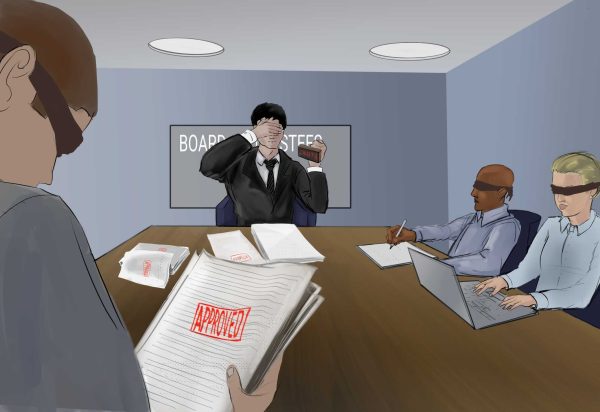Navigating the journey through community college
Welcome back for another fine semester here at EC. This being my last and final semester, I thought I would focus on writing a column so the new and interested students could get a better understanding of the “community”.
I would like to open with what all of us go through; trying to hold onto the pre-registered classes we signed up for at the beginning of the semester. It is hard enough attaining classes with it being so impacted at EC as well as at most other 4-year universities, so you are just warming up if you intend on taking the skills that you learned at a community college to a university.
The first thing we need to do is register for classes, which usually happens in the last quarter of the prior semester for all current students. This is a procedure in and of itself in which I will attempt to discuss in order to help give students a better understanding of the system.
Once you have attained your classes keeping them can be the hardest part. There are many issues that come up between the time you register and the time you attend those classes that can all be assessed with proper timing and handling, which is pertinent to succeeding each and every semester while attending EC.
The first thing you want to do is take a stroll to the Administration Building, located along Crenshaw Boulevard between the Humanities Building and the construction for the new Business and Health Sciences Building on the south side of campus.
Once at the Administration Building, go inside to the Cashier’s Office and if there is a line, which in many cases there is, stand there and wait. The lines can be so excruciatingly long at times that there are often police cadets to monitor the area.
So my advice is to go there prior to the semester or some time later in the semester to avoid such lines. These lines can be compared to the Financial Aid Office and even the Bookstore.
Eventually, after waiting in the line, it will be your turn to talk with one of the cashiers.
When talking with the cashiers, you will need to bring with you your student ID, for identification purposes, and money to pay your fees; paper or plastic will work. There is a general health fee, which is about $18 dollars and some odd cents. The health fee may be worth it to students given all that is offered at the Student Health Center. Some of those services include free chiropractic services and STD testing along with health workshops to manage anxiety and depression. Besides the health fee, there is the obvious tuition fee that must be paid to register for classes. But compared to 4-year universities, EC is grossly less expensive.
One last thing that is offered when paying the fees; students have the option of buying an Auxiliary Services Benefits sticker for $10, which may be a helpful purchasing if looking for discounts on various activities.
Now besides student enrollment fees, there are many students that must comply with financial aid requirements, which might obstruct students from registering and holding onto classes.
There are many factors that come into the picture when visiting a financial aid counselor to determine financial aid eligibility. For instance, the lines may be really long and the paperwork is abundant. Not to mention, the time a student must wait for their check can take even longer. It is best to apply as early as possible or prior to the beginning of the semester.
Most of the time, students waiting in lines at the Cashier’s Office and the Financial Aid Office have had their classes dropped with factors they sometimes have no control over. For instance, students not paying their fees because of financial aid ineligibility, completing less than 67 percent of classes, and/or earning less than a 2.0 GPA. But if a student needs to fix any of these issues, they will receive an email from the Financial Aid Office explaining how to resolve the dilemma.
So there is a better understanding on how students can navigate through their community college experience when waiting in long lines, filling out lots of financial aid paperwork and registering for classes.











